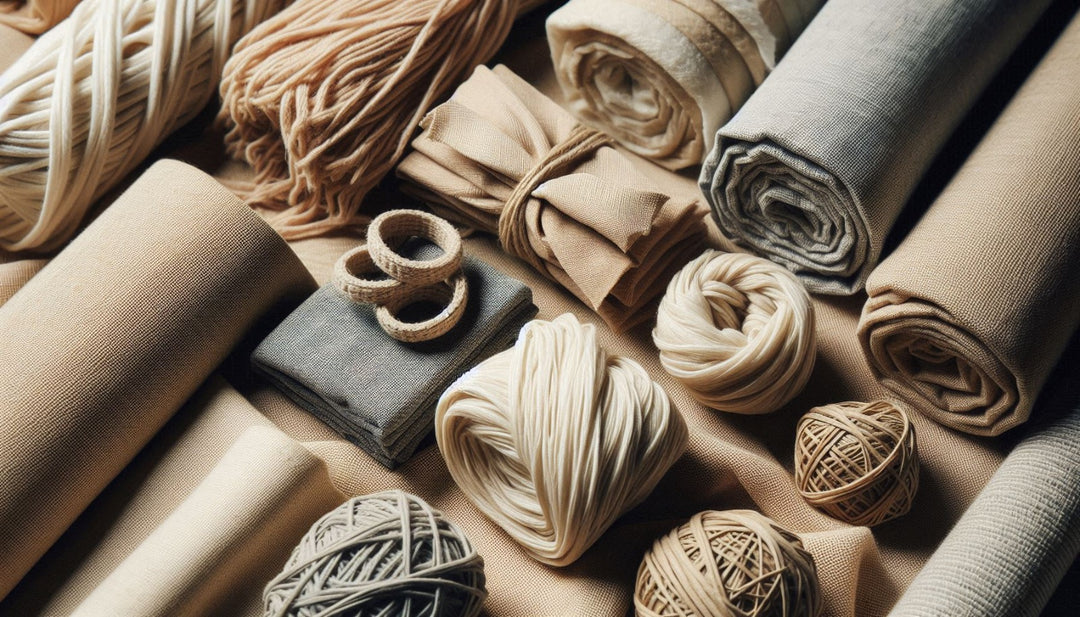Sustainable Fashion: How Wellbi is Leading the Change
In a world where fast fashion dominates, Wellbi stands out by championing sustainable and ethical practices. Discover how our commitment to sustainability not only enhances your wardrobe but also supports a healthier planet.

In today's fast-paced world, the term "fast fashion" has become ubiquitous, symbolizing our culture's obsession with quick trends and disposable clothing. But beneath the surface of this seemingly innocuous industry lies a darker truth—one of exploitation, environmental degradation, and unsustainable practices.
Fast fashion prioritizes speed and affordability, often at the expense of ethical production and environmental responsibility. From sweatshop labour to pollution from textile waste, the true cost of fast fashion is staggering.
However, amidst the chaos of fast fashion, a growing movement is taking root—one that values sustainability, ethical production, and conscious consumption. It's a movement that challenges the status quo, offering an alternative vision for the future of fashion.
The Importance of Sustainable Fashion
In recent years, the fashion industry has come under scrutiny for its significant environmental impact and ethical concerns. As consumers become more aware of these issues, there is a growing demand for sustainable fashion practices that prioritize environmental responsibility and ethical production standards.
Environmental Impact
Traditional fashion practices are known to have detrimental effects on the environment. From excessive water usage to pollution and waste, the environmental footprint of the fashion industry is undeniable.
Conventional textile production processes require vast amounts of water, leading to water scarcity in many regions around the world. Also, Chemical dyes and treatments used in conventional textile manufacturing pollute water sources and soil, posing risks to both human health and ecosystems.
The rise of fast fashion has led to a culture of disposable clothing, resulting in massive amounts of textile waste. In landfills, synthetic fibres can take hundreds of years to decompose, further exacerbating environmental problems.
Ethical Production
In addition to environmental concerns, the fashion industry also faces ethical challenges related to production practices. Issues such as fair labour conditions and worker rights are critical considerations for consumers and industry stakeholders alike.
Garment workers in many parts of the world face exploitative working conditions, including low wages, long hours, and unsafe working environments. Ensuring fair wages and decent working conditions for all workers throughout the supply chain is essential for ethical fashion production. From sweatshops to unsafe factories, the fashion industry has a history of disregarding worker safety.
Wellbi’s Sustainable Practices
At Wellbi, we are committed to sustainability at every stage of our production process. From sourcing eco-friendly materials to implementing zero-waste production techniques, we strive to minimize our environmental footprint while creating stylish and high-quality clothing.

Eco-friendly Materials
One of the cornerstones of our sustainability efforts is the use of eco-friendly materials. We prioritize fabrics that are gentle on the planet and on your skin. Organic cotton, for example, is grown without the use of harmful pesticides and chemicals, reducing the environmental impact of cotton cultivation. Bamboo is another favourite material of ours, known for its softness, breathability, and rapid regrowth properties. By incorporating bamboo into our clothing, we are able to offer you comfortable and sustainable options for your wardrobe.
In addition to organic cotton and bamboo, we also embrace the use of recycled materials. By giving new life to materials that would otherwise end up in landfills, we are able to reduce our reliance on virgin resources and contribute to the circular economy. Our commitment to stainability and innovation in the fashion
industry.
Zero-Waste Production
In our quest to minimize waste, we have adopted a zero-waste production approach. This means that we carefully plan our designs to maximize fabric utilization and minimize leftover scraps. Through thoughtful pattern-making and strategic cutting techniques, we aim to eliminate fabric waste at every step of the production process.
Our zero-waste design philosophy extends beyond just minimizing waste; it also encourages creativity and innovation in our design process. By embracing the challenge of working with limited resources, our designers are inspired to create innovative and sustainable solutions that push the boundaries of traditional fashion.

In conclusion, our commitment to sustainability is woven into the fabric of everything we do at Wellbi. From our use of eco-friendly materials to our zero-waste production practices, we are dedicated to creating fashion that looks good, feels good, and does good for the planet.
The Design Philosophy Behind Wellbi
At Wellbi, our design philosophy is centered around timeless styles and quality
craftsmanship, reflecting our commitment to sustainability and longevity.

Timeless Styles
Our designs are created to be timeless and versatile, transcending fleeting trends and reducing the need for frequent wardrobe updates. By focusing on classic silhouettes and enduring aesthetics, we aim to offer pieces that remain stylish season after season.
Quality Over Quantity
We prioritize quality craftsmanship in every aspect of our design process. From the selection of materials to the construction of our garments, we adhere to the highest standards to ensure that each piece is built to last. By investing in quality over quantity, we encourage conscious consumption and promote a more sustainable approach to fashion.
Tips for Building a Sustainable Wardrobe
Building a sustainable wardrobe starts with making thoughtful choices and caring for your clothing to extend its lifespan.

including gentle washing techniques, air drying, and proper storage. By taking care of their garments, readers can prolong their lifespan and reduce the need for frequent replacements.

growth in their communities.






Leave a comment